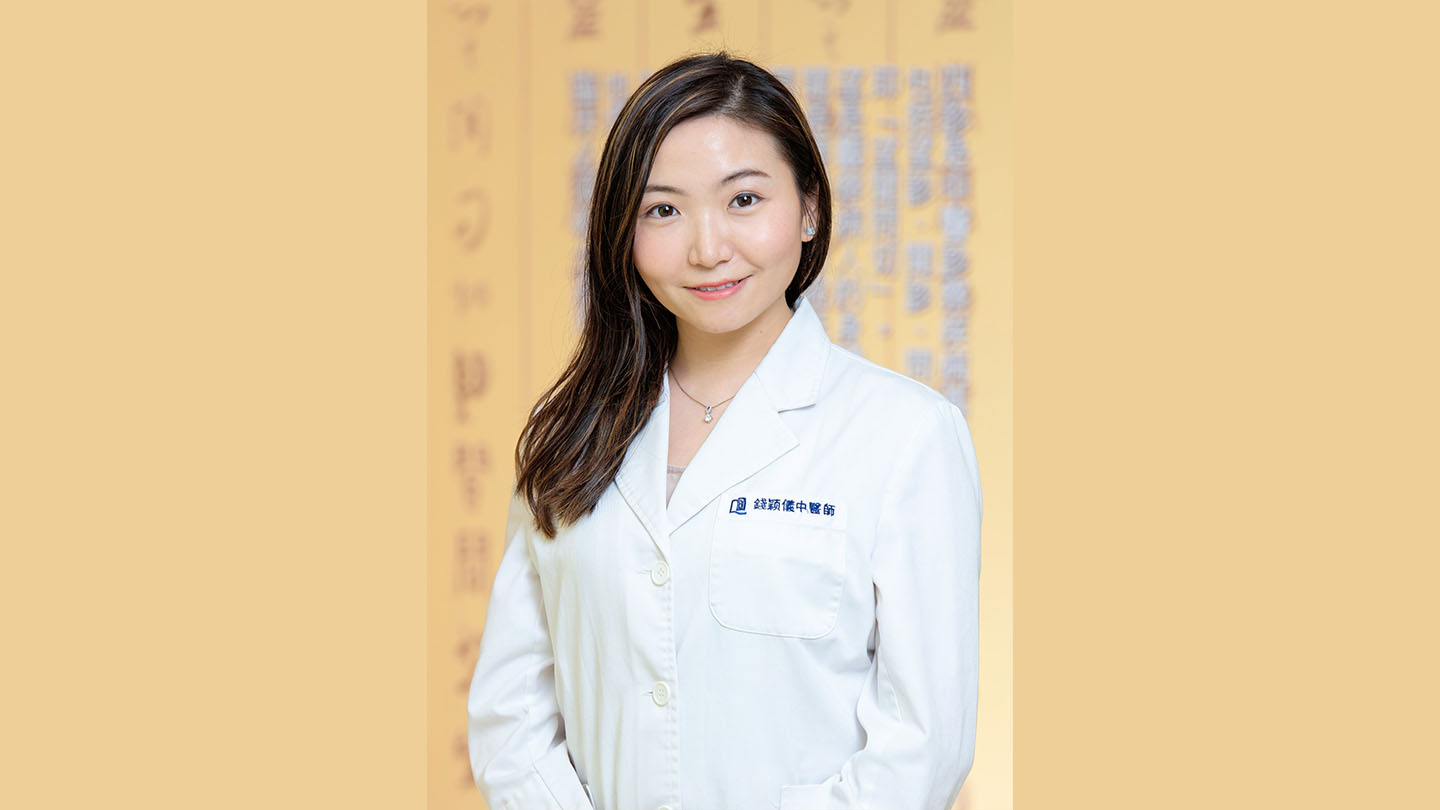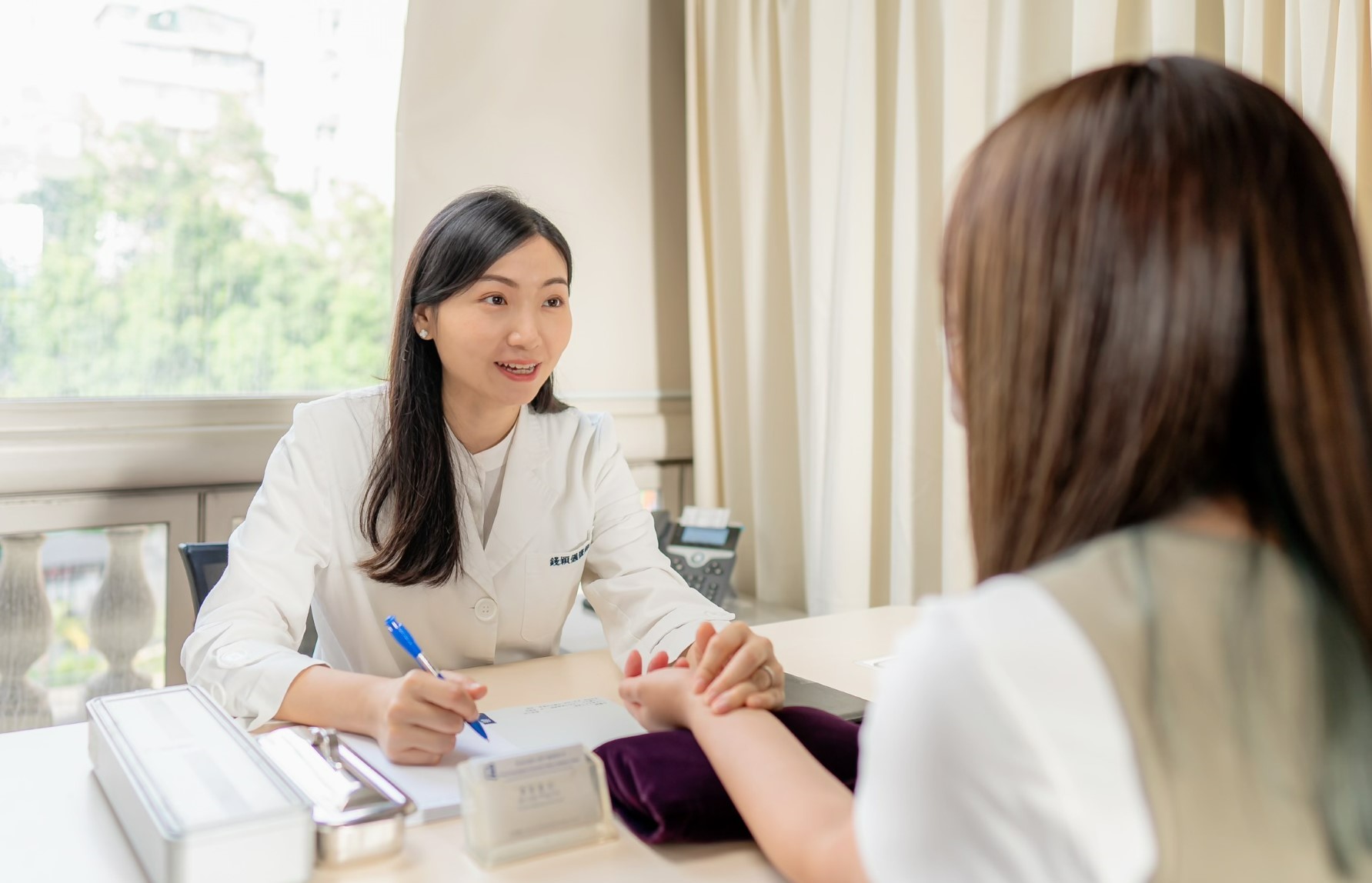News
Sharing by Dr. Winnie Chin, Assistant Professor of Practice in CLNC: Knowledge on Gynaecology from Chinese Medicine Perspective
7 July 2023
Dr. Winnie Chin Wing-yee graduated from HKBU with two degrees, namely Bachelor of Chinese Medicine and Bachelor of Science (Hons) in Biomedical Science (double-degree programme). With her interest in the area of gynaecology, Dr. Chin furthered her studies to obtain a master’s degree in Chinese Medicine at The Chinese University of Hong Kong and a PhD in Gynaecology in Chinese Medicine at the Beijing University of Chinese Medicine. Currently Assistant Professor of Practice in the Clinical Division (CLNC), Dr. Chin strives to provide quality care to women with her expertise in gynaecology in Chinese Medicine.


Dr. Winnie Chin Wing-yee, Assistant Professor of Practice in CLNC.
About menstrual pain
From the perspective of Chinese Medicine (CM), menstrual pain is often regarded as a result of Cold and Blood stagnation (寒凝血瘀) in the body. Cold and Blood stagnation would block the pathway of meridians (經絡不暢), and hence affect the passage of menstruation. Similar to the understanding in modern medicine, it is believed that Cold and Blood stagnation leads to strong uterus contraction which results in menstrual pain. From CM perspective, Cold and Blood stagnation can be caused by a variety of factors, including emotional stress, poor diet and overexertion.
From clinical observation, CM finds out that Cold (寒邪) is the major factor affecting menstrual pain in local patients. Cold is an outcome of eating cold and raw food and exposure to cold temperature, especially the lower abdomen and lower limbs. Therefore, it is important for women to keep the body warm, and they can apply heat pads on the abdomen to relieve menstrual pain. Besides, women are advised to take warm and nourishing food during menstruation in order to facilitate a smooth flow of Qi and Blood (氣血流通) in the meridians. Food such as ginger, cinnamon, and warm soup are recommended. For intractable menstrual pain problem, acupuncture and herbal medicine are commonly used in CM for treating the underlying imbalances.
Relationship between menstrual pain and infertility
From both CM and biomedical science perspectives, menstrual pain and infertility are often related. CM believes that Cold and Blood stagnation in the body can lead to imbalance in organ systems (臟腑失調), and so as the disharmony of Chong and Ren (沖任失調), and eventually affects fertility. When Cold and Blood stagnation arises, the ovaries may encounter ovulation difficulty and thus the uterus may not receive adequate nourishment, which may dampen a healthy pregnancy.
Pregnancy in women of advanced maternal age
The trends of late marriage and late childbirth nowadays increase the difficulty in successful pregnancy. With the increase in age, reproductive ability significantly reduces due to the challenge of Decreased Ovarian Reserve (DOR).
From the CM point of view, the main pathogenesis of low ovarian reserve is kidney deficiency. With reference to the CM theory “kidney is the master of reproduction (腎主生殖),” CM aims at tonifying the kidney (補腎) as a guide so as to invigorate the blood, which facilitates the regulation of the hypothalamus-pituitary-ovary-uterus reproductive axis. Herbal medicine can help nourish the kidney function and balance the body energy (補腎益氣), and specific herbs can be used to address underlying imbalances that affect fertility. Besides, acupuncture is often used on top of herbal medicine to boost the tonifying effect of Kidney, Spleen, Qi and Blood (補腎健脾,補益氣血).


Dr. Chin tries her best to help her patients get pregnant.
Please click here for the original article published on The BUddy Post – HKBU Alumni Affairs Office.